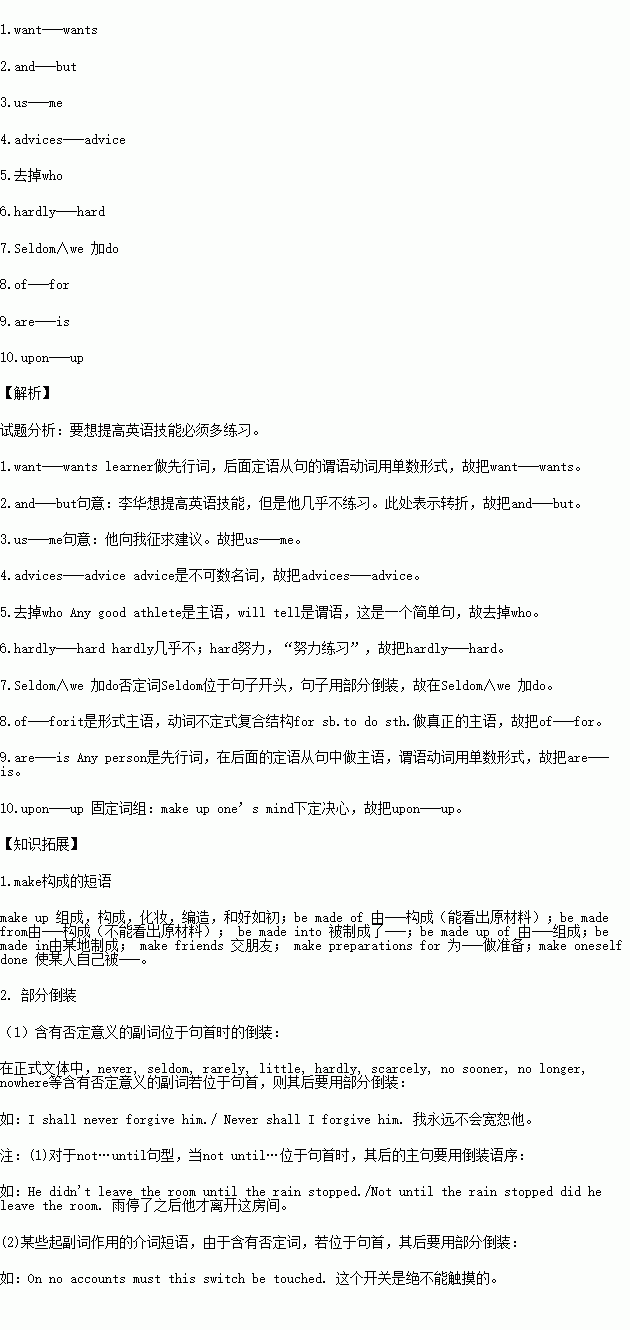��Ŀ����
�ٶ�Ӣ�������ʦҪ��ͬ��֮�佻�������ģ���������ͬ��д�����ġ����й���10�����Դ���ÿ���������������ÿ��������漰һ�����ʵ����ӡ�ɾ�����ġ�
ע�⣺
1������д�ڴ�����ϣ�
2��ֻ������10�������ߣ��ӵ�11���𣩲��Ʒ֣�
3��ÿ���������ľ�����һ�ʣ�
4��������š���ʽҪ�淶��
���ӣ���ȱ�ʴ���һ��©�ַ��ţ��ģ�������������д���üӵĴʡ�
ɾ�����Ѷ���Ĵ���б�ߣ�\��������
�ģ��ڴ��Ĵ��»�һ���ߣ����ڸô�����д���ĺ�Ĵʡ�
Li Hua is an English learner who want to improve his reading skills, and he rarely practices. Yesterday he came and asked us for advices. ��Any good athlete,�� I said, ��who will tell you he practices hardly to get in shape and achieve high honors. Seldom we hear of any athlete becoming a champion without any effort. We consider training to be a part of the game. Once he is in shape, it is easier of an athlete to succeed. Reading skills develop the same way. Any person who reads a lot are bound to improve his reading comprehension.�� Feeling ashamed, Li Hua made upon his mind to practice more in future.

